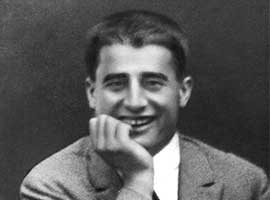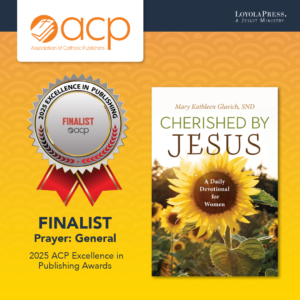 As a child, I had a record that played the song, “Mr. I. Magination.” I believe the first line continued, “the man with the magic reputation.” Our imagination truly is magical. We thank God for our gifts of sight, hearing, and—especially after a scrumptious meal—taste, but how many of us thank for the gift of imagination? Recently I heard a homily in which the priest pointed out that imagination is a power of our soul that we share with God. After all, God first imagined the world and us—conceived it in his mind—before he brought it into being! Our imagination helps us to create too. Author Jules Verne imagined things like lunar modules, diving bells, and tasers before they became realities. As Albert Einstein said, “Imagination is everything. It is the preview of life’s coming attractions.” No doubt Michelangelo, Monet, and Van Gogh first visualized their masterpieces in their mind’s eye.
As a child, I had a record that played the song, “Mr. I. Magination.” I believe the first line continued, “the man with the magic reputation.” Our imagination truly is magical. We thank God for our gifts of sight, hearing, and—especially after a scrumptious meal—taste, but how many of us thank for the gift of imagination? Recently I heard a homily in which the priest pointed out that imagination is a power of our soul that we share with God. After all, God first imagined the world and us—conceived it in his mind—before he brought it into being! Our imagination helps us to create too. Author Jules Verne imagined things like lunar modules, diving bells, and tasers before they became realities. As Albert Einstein said, “Imagination is everything. It is the preview of life’s coming attractions.” No doubt Michelangelo, Monet, and Van Gogh first visualized their masterpieces in their mind’s eye.
We imagine how we would like a room decorated, how we will plant a garden, and cook a meal before we actually do it. With our imagination we solve problems and daydream. Writers draw on imagination to come up with a fascinating story, and readers use imagination to visualize that story. For example, when we hear or see the word “red,” immediately that color appears in our mind’s eye. Likewise, at the words “Beethoven’s Fifth Symphony,” our imagination lets us hear “Da-da-da-Dum” even when we are not listening to an orchestra.
Imagination is powerful. Before going on stage, performers visualize their act ahead of time and speakers see themselves giving a talk smoothly and without stage fright. This enables them to be successful. In the same way, if we imagine ourselves driving through a blizzard or downpour confidently, chances are we’ll be all right. On the other hand, if we place in our minds the image of ourselves failing at a task, say losing a race, like a self-fulfilling prophecy, we probably will.
Imagination lets us walk through memory’s halls and replay pleasant experiences as though watching a video, and enjoy them all over again. Of course, it can also replay bad experiences.
Saints have advised using imagination in prayer. Read any Gospel story, and then imagine yourself taking part in it. You can simply be a bystander watching Jesus heal the leper, raise Lazarus from the dead, or offer the bread at the last supper. You might even take the role of one of the people in the story. Imagine that you are Zacchaeus trying to see Jesus, or Peter being pulled out of the Sea of Galilee by him. What do you see, hear, smell, taste as the event unfolds? How do you feel? What would you say to Jesus about what happened? Say it! As a follow up, you might imagine yourself alone with Jesus, perhaps sitting together on the shore of the Sea of Galilee or walking together along a dirt road in Capernaum. Imagine your conversation. Listen to what Jesus says to you.
of the people in the story. Imagine that you are Zacchaeus trying to see Jesus, or Peter being pulled out of the Sea of Galilee by him. What do you see, hear, smell, taste as the event unfolds? How do you feel? What would you say to Jesus about what happened? Say it! As a follow up, you might imagine yourself alone with Jesus, perhaps sitting together on the shore of the Sea of Galilee or walking together along a dirt road in Capernaum. Imagine your conversation. Listen to what Jesus says to you.
Guided meditation is a form of prayer that also involves the imagination. For example, the leader suggests to the pray-ers that they imagine their favorite room and visualize its every detail. Then they are to imagine that Jesus enters the room and converses with them. Children might be directed to imagine they are sitting on Jesus’ lap.
A friend of mine, an English teacher, claimed that she was not able to visualize things in her mind. I can’t imagine that! But if it’s true, what a loss, a disability for her.
Thank God for our imagination and for letting us enjoy the fruits of others’ imagination! As Einstein also observed, “Imagination is more important than knowledge. Knowledge is limited. Imagination encircles the world.”
How has your imagination helped you?









5 Responses
Hey Sister,
Funny that you bring this subject up as I’m looking at the poster in our kitchen.
“It will cost nothing to dream and everything not to.”
Seriously, have you ever stopped and thought about how much time in a day you spent daydreaming?
Getting back to your question, people come to me with their problems all the time, I’m a dentist. So, I have to use my imagination constantly to find
solutions. Yes, I use past knowledge to envision the outcome, but trust me, no two patients are the same.
Mark
I have to use my imagination, too, in my work. Although I’m a theology student, I also do PR for the medical and dental professions to pay my bills. I use my imagination all the time in devising the best way to motivate people to see the doctor, dentist, or clinic that I’m promoting. I also use my imagination in my theology lessons. I usually visualize my written paper before I write it. I really enjoy planning gardens and even the layout of houses, although I could never be an architect!
Mark and Gabrielle, interesting applications of the imagination! Thank you for your comments. Mark, I’m going to try to pay attention to the amount of time I spend daydreaming, which could probably be a waste of time or not depending on what goes on during it.
Hey Sister,
Time is never wasted!
Mark
Mark, I’m finding that I devote a great deal of time daydreaming each day!